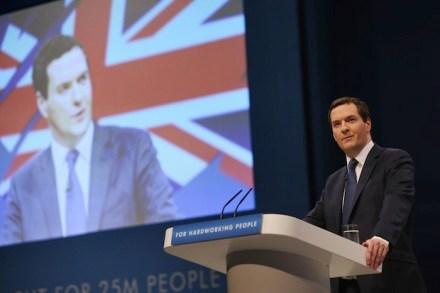View from 22 podcast special: the return of George Osborne
Fraser Nelson thinks it was the ‘language of someone happy with the economy’. James Forsyth saw it as renewed hope for leading the Conservative party. On this special View from 22 podcast, we analyse George Osborne’s speech to Tory conference this morning; whether the economic measures mentioned were sensible and what it says about the Chancellor himself. You can subscribe to our podcast through iTunes and have it delivered to your computer every week, or you can use the embedded player below: listen to ‘Spectator Podcast: @frasernelson and @jamesforsyth discuss Osborne’s speech’ on Audioboo




















